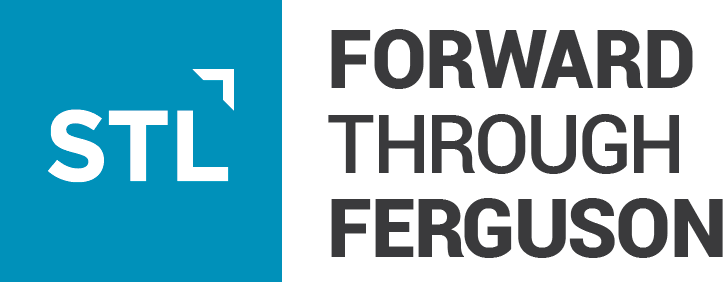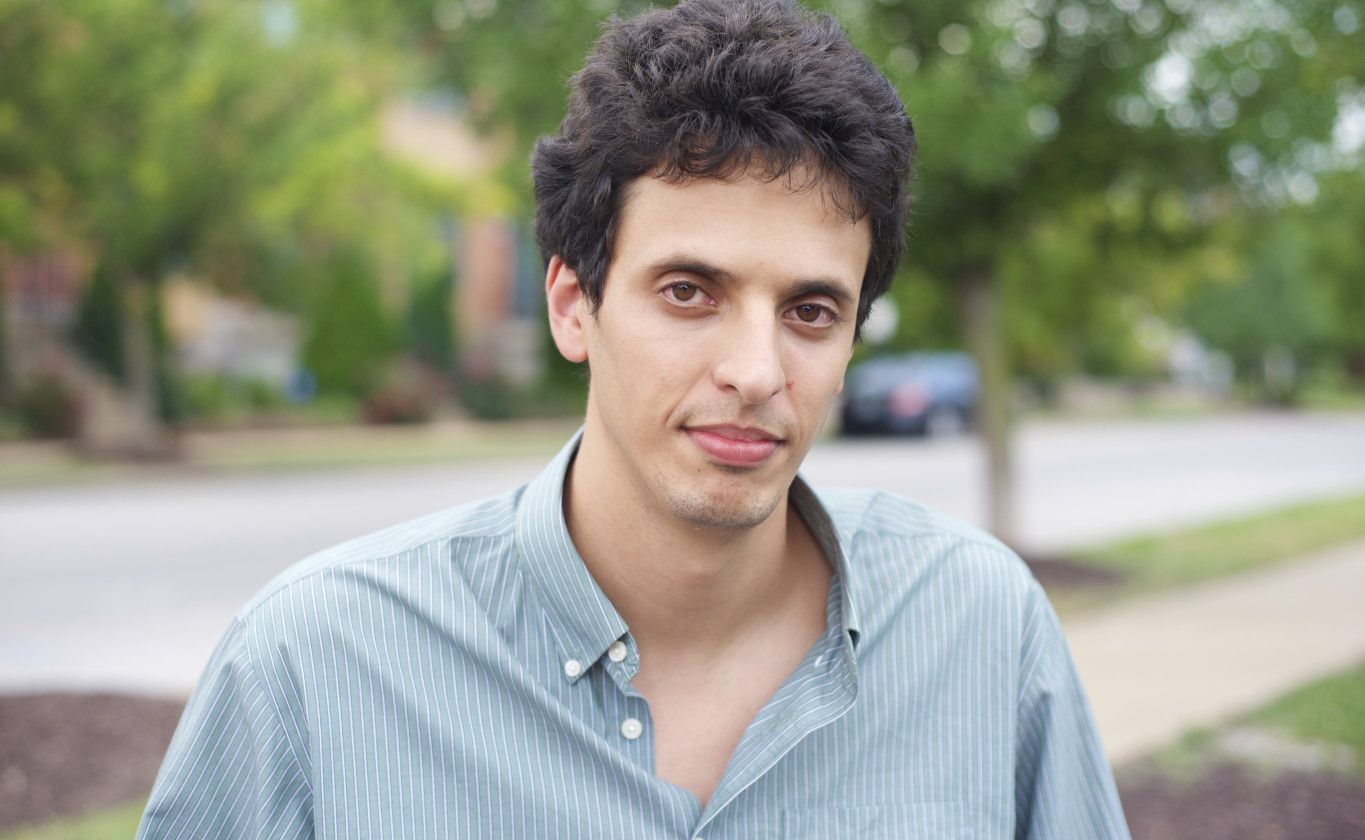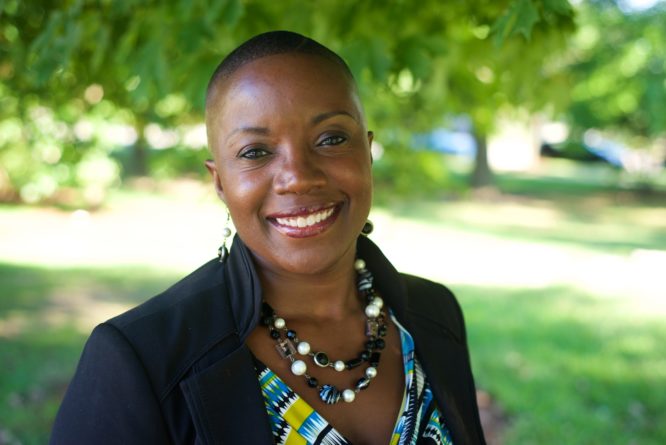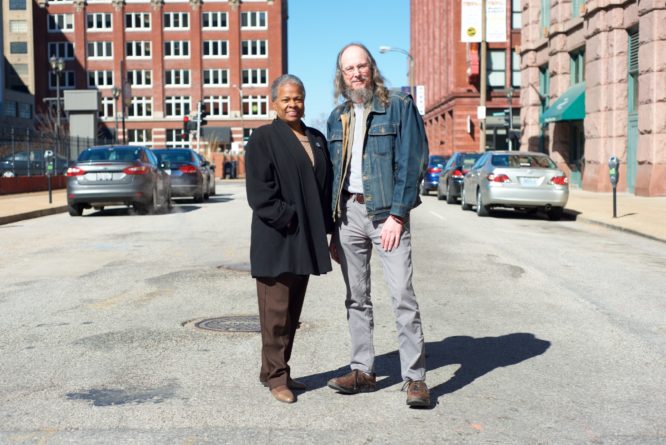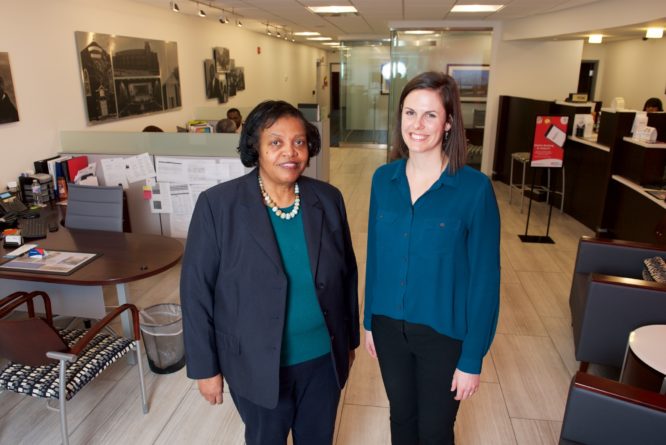In late November last year, former St. Louis resident Bob Staake created a New Yorker magazine cover whose disjointed Gateway Arch, with halves stretching above ground mirroring that break, sparked local debate. What was praised or criticized had as much to do with its depiction of division as its very simple palette – a blue sky backdrop, and the Arch’s sides, along with the cityscape below, in black and white – and what it suggested about race in STL.
Talking to folks here about diversity in St. Louis makes it clear that the white/black binary dominates in this region. Demographic data for city and county reflect why. Another binary relates directly to the origins of the area’s name and its numbers. St. Louis city and county, at least until five years ago, came in at about 42% Christian (Catholic and Protestant), 53% non-religious, and 4% Orthodox and “other.”
It’s no surprise that general awareness about St. Louis’ non-Judeo Christians who’ve mobilized around Ferguson-related issues remains low, especially given the activism and prominence of many black and white church leaders and rabbis in the public sphere since August 2014. This, of course, certainly doesn’t mean response has been lacking in less populous religious communities in the area.
Among the “other” faithful spurred by the past events is Mustafa Abdullah, an East Coast native and Muslim who came to St. Louis a few years ago to work with the American Civil Liberties Union of Missouri. The following interview excerpts show how he’s been touched by the past year’s events on different levels. He also talks about the ways he’s seen folks near and far, from many walks of life, come together to create a region that’s better, stronger, and more equitable for everyone who lives here, regardless of religion, race, or ancestry.
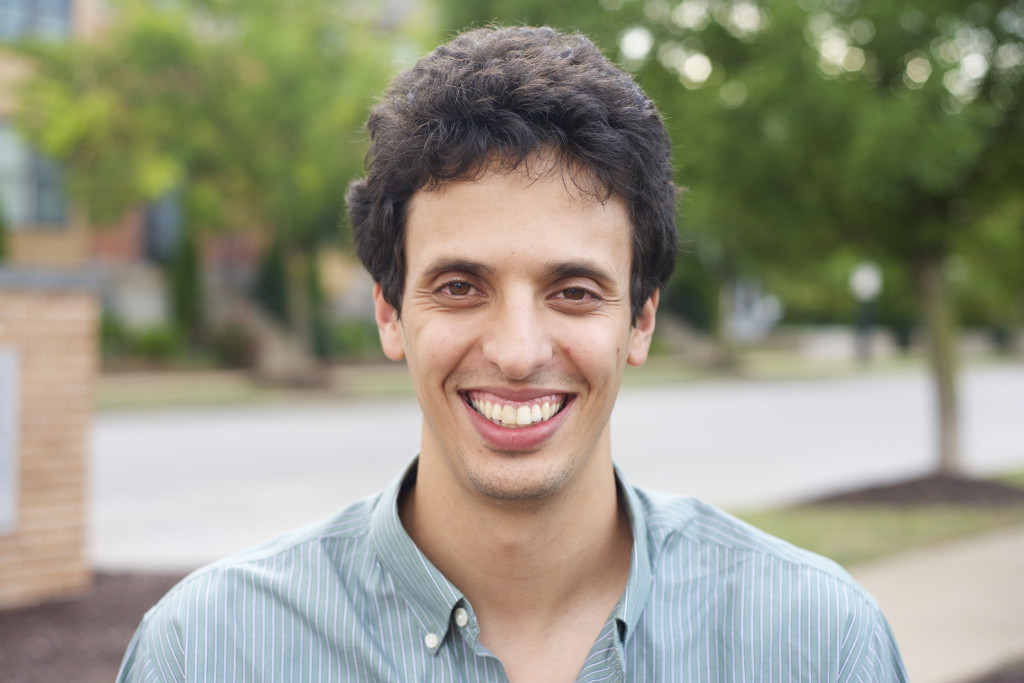
Mustafa Abdullah, photos by Lindy Drew
On a memory prompted by the situation with Mike Brown, and what action came from relating that way:
Many years ago, I was in the Atlanta airport. I came about two-and-a-half hours before my domestic flight because, since September 11th, I was getting checked multiple times. I got in line to check in, and a lady came around. “Have you tried using one of our computers?” I said, “No, the computers don’t work for me… every time I swipe my ID or my credit card, it just… beeps.” She said, “No, no, no; that can’t be the case, there must be something wrong.” So she pulled me out of line, and, of course… BEEP.
I get put in the back of the line, and I’m getting nervous because there’s only about an hour or so left ‘til the flight. I get to the front desk. The lady swipes my ID, and again: BEEP. She’s like, “I’ve never seen this before. I don’t know what this is.” She took me to the back room – the infamous back room – with one of the managers from Delta. He starts typing away at his computer.
I look at him. “Why is this happening to me?” He says, “You have an irregular flight pattern.” I say, “Really? Is that the case? I have an irregular flight pattern?” He eventually said, ‘You’re on the watch list.’
Because my name is synonymous with [that] of a known terrorist, I get picked up and I get profiled.
So I was thinking about how problematic policing practices impact the Muslim community, and that was what led to the start of Muslims for Ferguson. The largest percentage of Muslims in this country are African American Muslims, but there’s a very big divide between African American Muslims and non-black Muslims. We [the co-founders of the group] decided that there needed to be conversations nationally about how these issues intersect, to tell stories of the people that are on the ground – Muslims and non-Muslims – that are doing really important work, to lift that up, and share that as an example of what folks can be doing in their communities.
During the second week of protests, we launched our first Muslims for Ferguson call [on] Facebook, and 250 people joined the call.
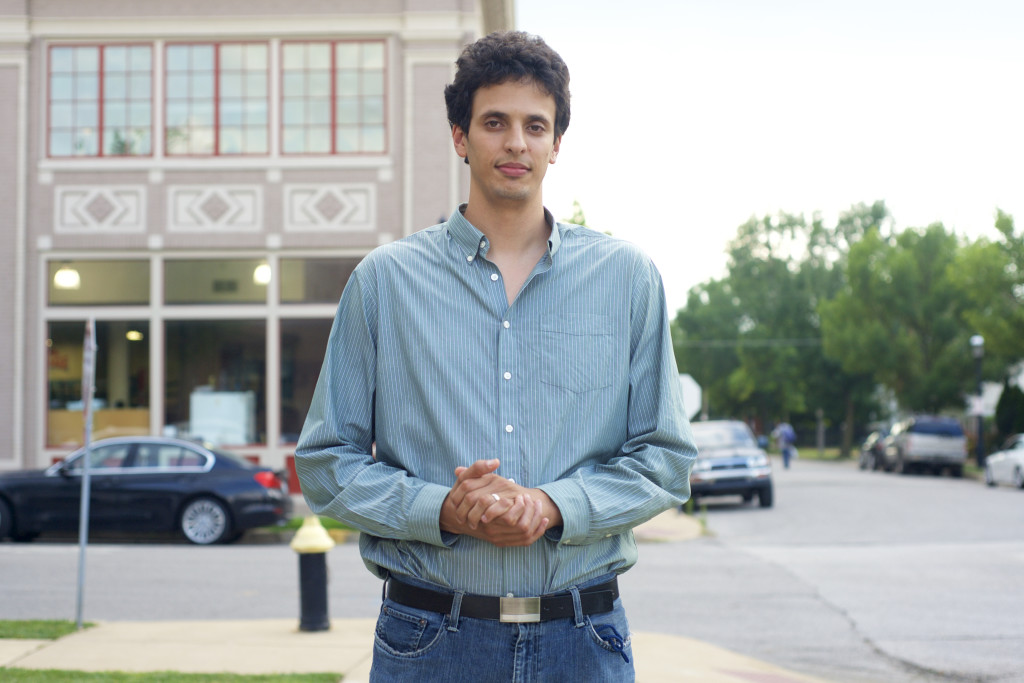
On why fellow Muslims, locally and nationally, connected with and around what they saw occurring in Ferguson:
I think for a number of Muslims, particularly Muslims who are not African American [and] have a conscience about these issues, it was a major shock: this was the reason our families came to this country; and we’re seeing there’s a community where that [people’s rights]’s being taken away. One of the immediate policy issues that came to mind for Muslims was the militarization of police, and how that happen[s].
What we’ve learned together is that a major reason there’s such an excess of military equipment is given freely to local police departments is all the wars we’re engaged in… a lot of the people in the Muslim community have had their communities destroyed, or ravaged, by war where the U.S. was involved. It’s appropriate to use some of these weapons abroad. But for them to come home feels a little bit different.
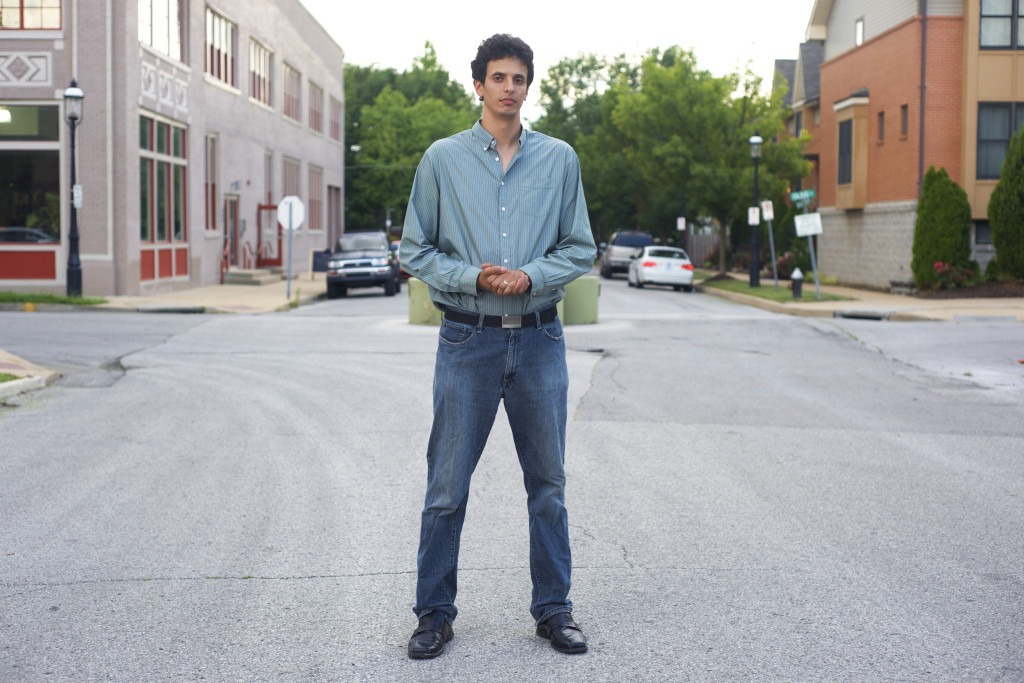
On seeing people connect and build a new kind of community:
The conversation that I want to push forward more is the same conversation that these young black activists have been talking about, which is the interconnectedness of struggles from around the world. It’s almost like there’s a new wave of the tradition of Malcolm X, this global thinking that I haven’t quite seen before. And I think it’s difficult to talk about because if you’re talking about all these marginalized and oppressed communities, for the status quo to try to make sense of it.
[T]he conversation and framing around liberation for black people as liberation for humanity… there hasn’t been much of a conversation in the national media around the interconnectedness of these issues. They seem to be very stuck on just race. Is it a white/black issue? That’s an important thing; but I think these young people are [not] just talking about the black and white dynamic. This interconnectedness has led to a kind of community-building that I haven’t seen before – unlike anywhere where I’ve lived.
This interconnectedness has led to a kind of community-building that I haven’t seen before – unlike anywhere where I’ve lived
The first day the head of the state highway patrol took over policing in Ferguson… there were probably a couple thousand people out there on the streets barbecuing, dancing, singing, doing art, having a great time in this public space… and it was so easy just to go up and talk to people and ask how they’re doing, what their experience has been. And I think that’s something that can be modeled for a lot of our communities. These young people have created these public spaces where people of all different kinds of backgrounds can come together in a relatively safe space and just talk about what’s going on. We miss that a lot; our communities are extremely segregated. I think that’s one of the most amazing things that’s come out of the movement thus far. It’s an incredible accomplishment, actually.
To hear how Mustafa’s experience in Atlanta connected to Ferguson and a familiar childhood scene with his immigrant father:
By Elaine Cha for #FwdThruFerugson
